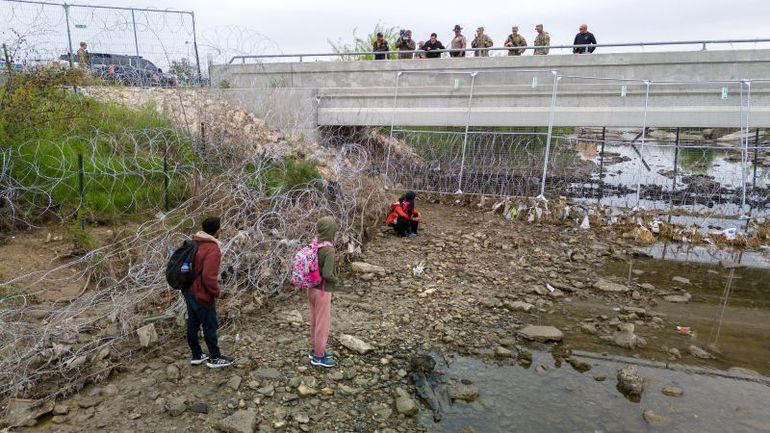
Federal Appeals Court Blocks Texas Immigration Law Once Again

Late on Tuesday night, a federal appeals court has once again halted Texas' controversial immigration law, putting it back on hold.
Late Tuesday night, a federal appeals court halted Texas' contentious immigration law, just hours after the Supreme Court had given the green light for the state to implement the measure.
The 5th US Circuit Court of Appeals, in a 2-1 decision, overturned a previous ruling that had temporarily allowed the law to go into effect. This law would enable state officials to detain individuals they suspect of entering the country unlawfully.
The panel of judges who made the decision on Tuesday evening are also scheduled to listen to arguments on Wednesday morning regarding Texas' appeal to reinstate Senate Bill 4. This comes after a federal judge blocked the law.
Among the members, Circuit Judge Andrew Oldham expressed his disagreement by stating that he believes the law should stay in effect for the time being.
He wrote that he would wait until tomorrow's oral argument before making a decision on whether to leave the stay in place.
The legal battle over SB 4 had reached the Supreme Court, which on Tuesday allowed the measure to take effect by denying emergency appeals from the Biden administration and other parties.
Hours later, the appeals court decided to have oral arguments to discuss whether to stop the law temporarily while they review the legal issues. The virtual oral arguments are set for Wednesday at 11 a.m. ET.
No matter what the 5th Circuit decides after the arguments on Wednesday, they will still have more discussions next month about whether the law goes against the Constitution and if it should be stopped permanently.
SB 4, signed into law by Republican Gov. Greg Abbott in December, now makes entering Texas illegally a state crime. This law also gives state judges the authority to order immigrants to be deported. Generally, immigration enforcement is a responsibility of the federal government.
A federal judge in Austin stopped the state government from enforcing the law because it might lead to each state creating their own immigration laws. The Supreme Court's three liberal justices also expressed worries about the law and disagreed with the decision to allow it to be implemented temporarily on Tuesday.
Justice Sonia Sotomayor, along with Justice Ketanji Brown Jackson, expressed concern that the order could lead to more confusion and problems in enforcing immigration laws.
In her dissent, Sotomayor explained that the law disrupts the long-standing balance of power between the federal and state governments regarding the entry and removal of noncitizens.
The case could soon make its way back to the Supreme Court.
This story has been updated with additional developments.
Editor's P/S:
The ongoing legal battle over Texas' controversial immigration law highlights the complex interplay between federal and state authority in the realm of immigration enforcement. The 5th Circuit Court of Appeals' decision to halt the law's implementation, despite the Supreme Court's initial approval, underscores the ongoing debate over the scope of state power in addressing immigration issues. The court's decision to hear oral arguments on Wednesday suggests that the legal fate of SB 4 remains uncertain, potentially setting the stage for a further clash between the federal government and the state of Texas.
As the legal proceedings continue, it is crucial to consider the broader implications of SB 4 and similar measures. Critics argue that such laws undermine the federal government's exclusive authority over immigration matters and create a patchwork of state-level enforcement that could lead to discrimination and confusion. Proponents, on the other hand, contend that states have a legitimate interest in protecting their borders and addressing the challenges posed by illegal immigration. The outcome of this case will have significant consequences for the balance of power between federal and state governments and the future of immigration policy in the United States. not undermine the established federal framework and infringe upon the rights of individuals.








